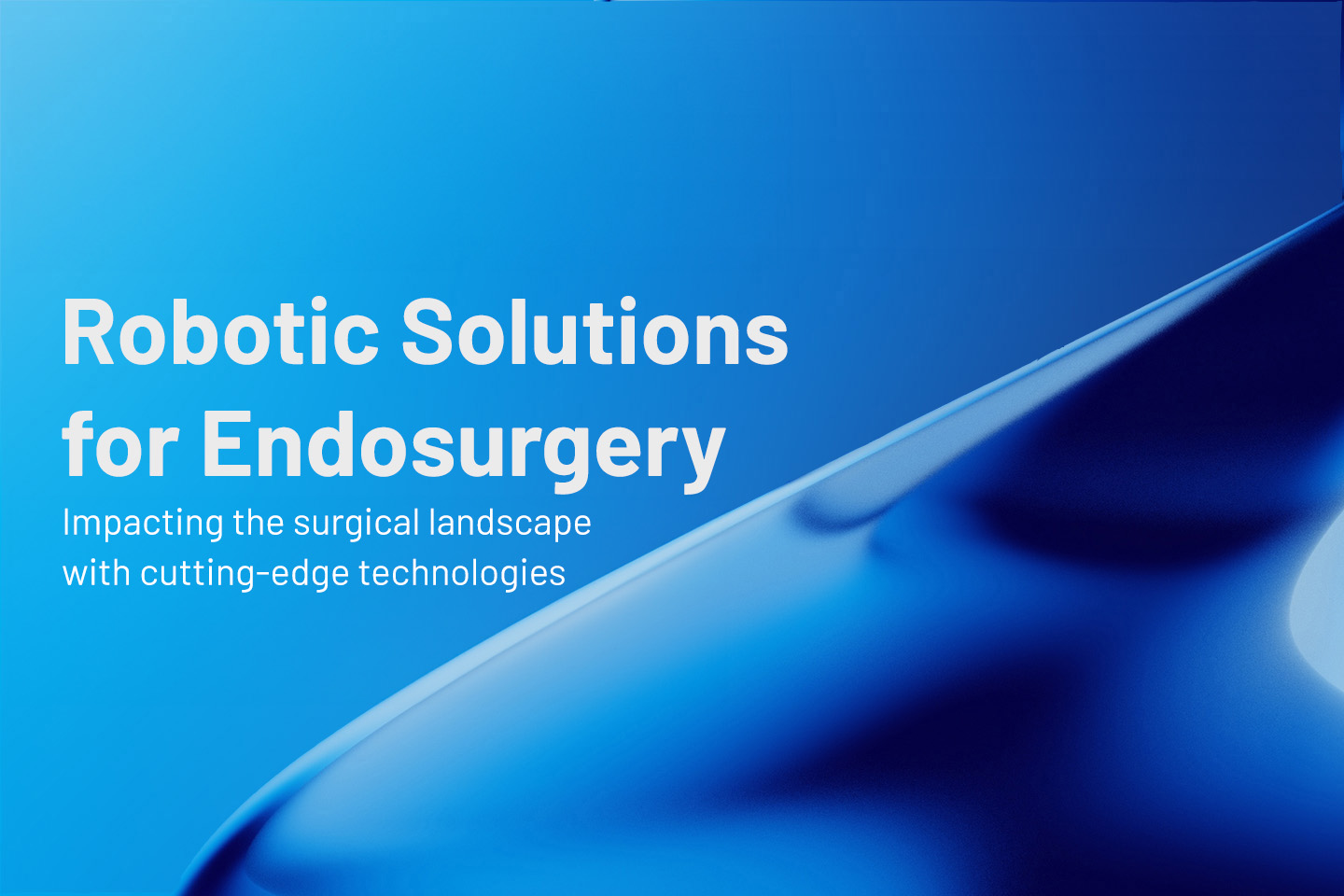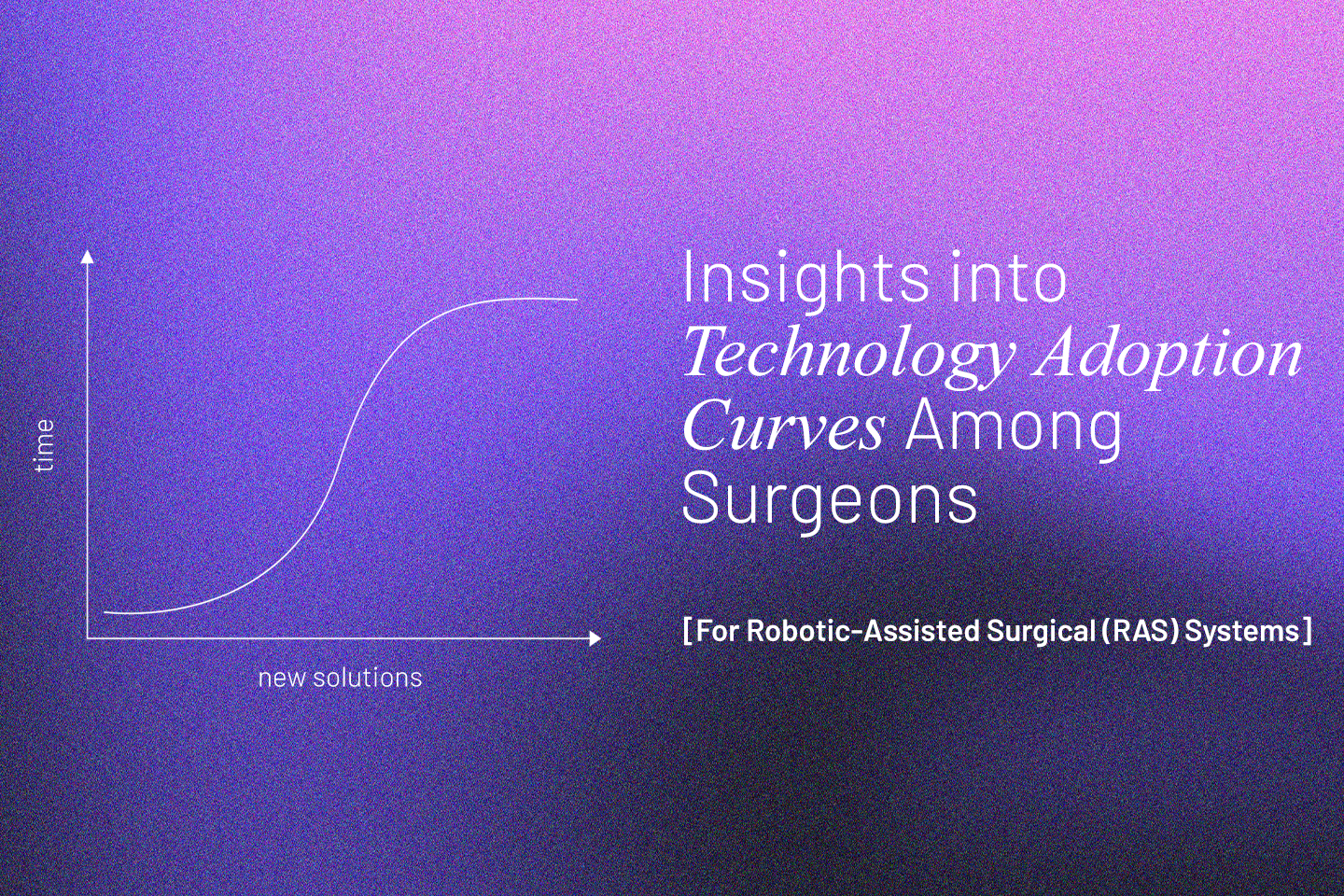Medical Devices
Meril’s Robotic Solutions for Endosurgery

Since the first documented instance in 1985, robot-assisted surgery has become an integral part of the medical landscape. Today, it is estimated that over 15% of surgeries worldwide are conducted using robotic systems.
For minimally invasive endoscopic procedures, robotic systems offer critical advantages to surgeons—including enhanced visualization in hard-to-reach areas, superior control, and greater range of motion—that enhance their procedural capabilities. For patients, benefits include lower blood loss during the procedure, smaller scars, and reduced hospital stays. As the healthcare industry grows more attuned to patient-centered outcomes and efficiency, the integration of robotics in surgery is becoming not only a trend but a necessity.
Recognizing this shift, Meril is at the forefront of advancing robot-assisted surgery, committed to making these technologies accessible to healthcare providers and patients worldwide. Meril's endosurgery portfolio exemplifies this commitment, featuring solutions like the HandX and Mizzo Flex that not only enhance surgical capabilities, but also address the practical challenges faced in diverse healthcare environments.
HandX: Bridging the Gap Between Laparoscopic and Robotic Surgery
An FDA-approved platform, the HandX merges the dexterity of robotic technology with the ergonomic design of a modular handheld instrument. Its software streamlines the surgeon’s natural hand and wrist motions into fluid movements within the patient’s body, with jaw movements up to 540 degrees of rotation to mimic natural finger gestures.
The HandX adjusts comfortably to the surgeon’s hand, providing a firm grip and allowing precise access to target anatomy through its software-controlled articulating tip. This tip offers the same degrees of freedom as any full-scale surgical robot, enabling surgeons to perform complex procedures with accuracy. Additionally, HandX provides tactile feedback, preserving the traditional surgical experience.
Portability is another standout feature—it does not require a dedicated O.T. and can be shifted immediately from one room to another when required. Its compact footprint is particularly advantageous for operating theatres that may be constrained by space.
The HandX can be seamlessly incorporated into any hospital surgical environment with minimal set-up time and maintenance, and without disrupting any established workflows. The platform is designed to accommodate surgical teams of varying skill levels, featuring a short learning curve that empowers a broad range of healthcare professionals to utilize robotic assistance effectively while requiring no specialized docking or maintenance.
Mizzo Flex Single Access: Bringing a Transformative Change in Single Access Surgical Procedures
Mizzo Flex SA is designed to solve the challenges of traditional laparoscopic procedures of the uterus, including incisional hernia, bowel interference, and scarring. It features a compact design, equipped with two retroflex instruments that provide complete freedom of movement within the abdominal cavity, allowing unprecedented articulation, dexterity, and reach. With Mizzo Flex SA, surgeons can use their existing laparoscopic vision to perform a range of transvaginal procedures, including benign hysterectomy, oophorectomy, salpingectomy, adnexectomy, and ovarian cyst removal. The versatile instrument tips enable both cutting and coagulation with a single tool, making this robotic platform both convenient and adaptable to diverse surgical needs.
Thanks to its small size and portable design, Mizzo Flex SA is a space-efficient platform with minimal implementation costs in the operating room. Even though it was designed with single-point access transvaginal procedures in mind, this tool can be used through other natural orifices, as well as in procedures requiring traditional robotic entry.
Embracing robot-assisted surgery in healthcare
Despite the notable strengths of surgical robotic systems, their adoption still faces some hurdles to overcome. Many robotic platforms are bulky, taking a lot of valuable space in the operating room or outright requiring a dedicated facility. For hospitals with budget constraints or limited facilities, incorporating such systems is challenging. Bridging these accessibility gaps requires innovation—solutions that blend the power of robotics with compact, cost-effective designs suited to diverse healthcare environments.
Meril is committed towards creating a future where advanced surgical technology is accessible to all healthcare providers. From large-scale robotic systems to specialized handheld tools, Meril is the only company that offers a diverse range of robotic platforms tailored for multi-specialty hospitals; and will continue to push the limits of what’s possible in the medical field through smart designs and engineering.
As we move toward a future where robotic-assisted surgery becomes the standard rather than the exception, Meril remains dedicated to ensuring that surgeons and patients alike can benefit from the remarkable advancements in surgical robotics.





